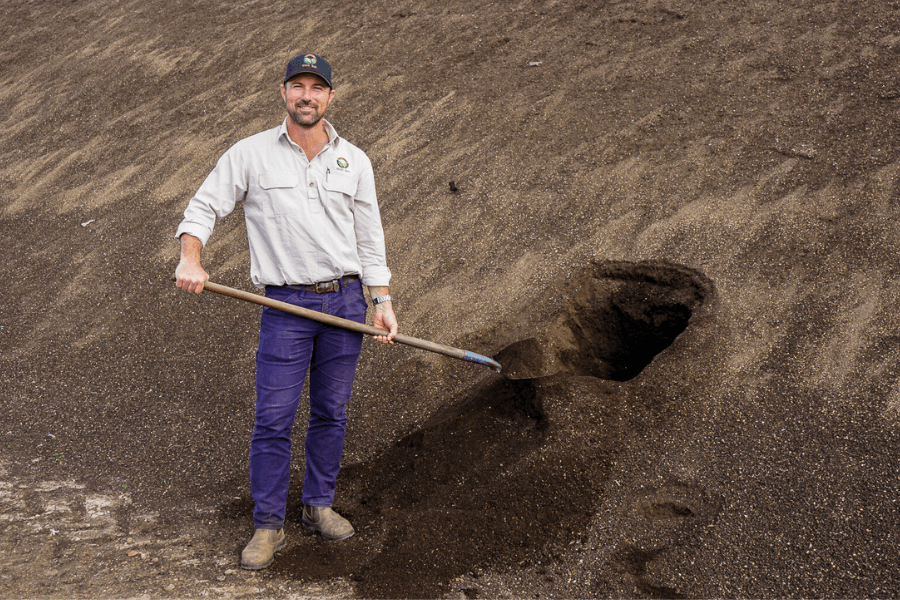As Australian horticulture and broadacre farmers ready themselves for the upcoming change of season, the importance of soil preparation should not be overlooked.
Soil acidity consistently poses a significant challenge for farmers, purely from harvesting and the build-up of plant-based organic matter. Acidic soil can diminish nutrient availability, worsen the effects of toxic substances, and hamper essential soil functions vital for plant growth and water use efficiency. If left unchecked, soil acidity can hinder farming productivity and threaten sustainable agricultural practices, leading to lower crop yields and compromised soil quality.
Every seasonal transition presents a pivotal opportunity to replenish the soil, and utilising compost produced through thermophilic and vermiculture methods offers a sustainable, economical, and enriching solution.
So what are thermophilic composting and vermiculture techniques?
Thermophilic composting and vermiculture are two unique techniques used for organic waste management and soil enrichment.
Thermophilic composting is a process that involves creating a controlled environment to break down organic materials using heat-loving microorganisms (thermophiles).
The process involves mixing and arranging layers of organic waste materials, such as kitchen scraps, yard waste, and commercial organic waste from food production, to create a balanced carbon-to-nitrogen ratio. The key to achieving a nutrient-rich compost is the addition of water, which is added in the first 2 to 3 turns of the compost pile. This creates an environment of at least 40% moisture that acts as a catalyst for thermophile activity. The compost pile is turned and aerated regularly to prevent internal combustion from overheating.
Vermiculture, also known as worm composting, involves the use of compost worms to convert organic waste into a high-quality organic fertiliser called vermicompost.
The process requires composting worms (red wrigglers) that are kept cool with damp and well-ventilated bedding material. With the right home, the worms can be fed a range of organic wastes. The worms excrete castings (vermicompost), an enriching and valuable material that enhances soil fertility.
At Worm Tech, we employ thermophilic composting and vermiculture techniques to create a premium compost that is more than just a soil amendment – it’s a natural biological powerhouse, facilitating nutrient uptake and water retention essential for thriving crops and a sustainable farming future. Our experts work closely with farmers to select the best compost blend tailored to their specific challenges, ensuring optimal results and long-term soil vitality, without the risk of burning associated with some chemical fertilisers.
Explore a variety of unique, beneficial composts and compost blends from Worm Tech at https://wormtech.com.au/agriculture/compost.
Years of experience working with the industry and passion for creating a sustainable future for Australian farmers drive us to deliver unparalleled quality and results. As you prepare your land for the season ahead, trust Worm Tech to be your partner in nurturing your soil and cultivating success. Together, let’s feed the nation and build a brighter future for Australian horticulture.





